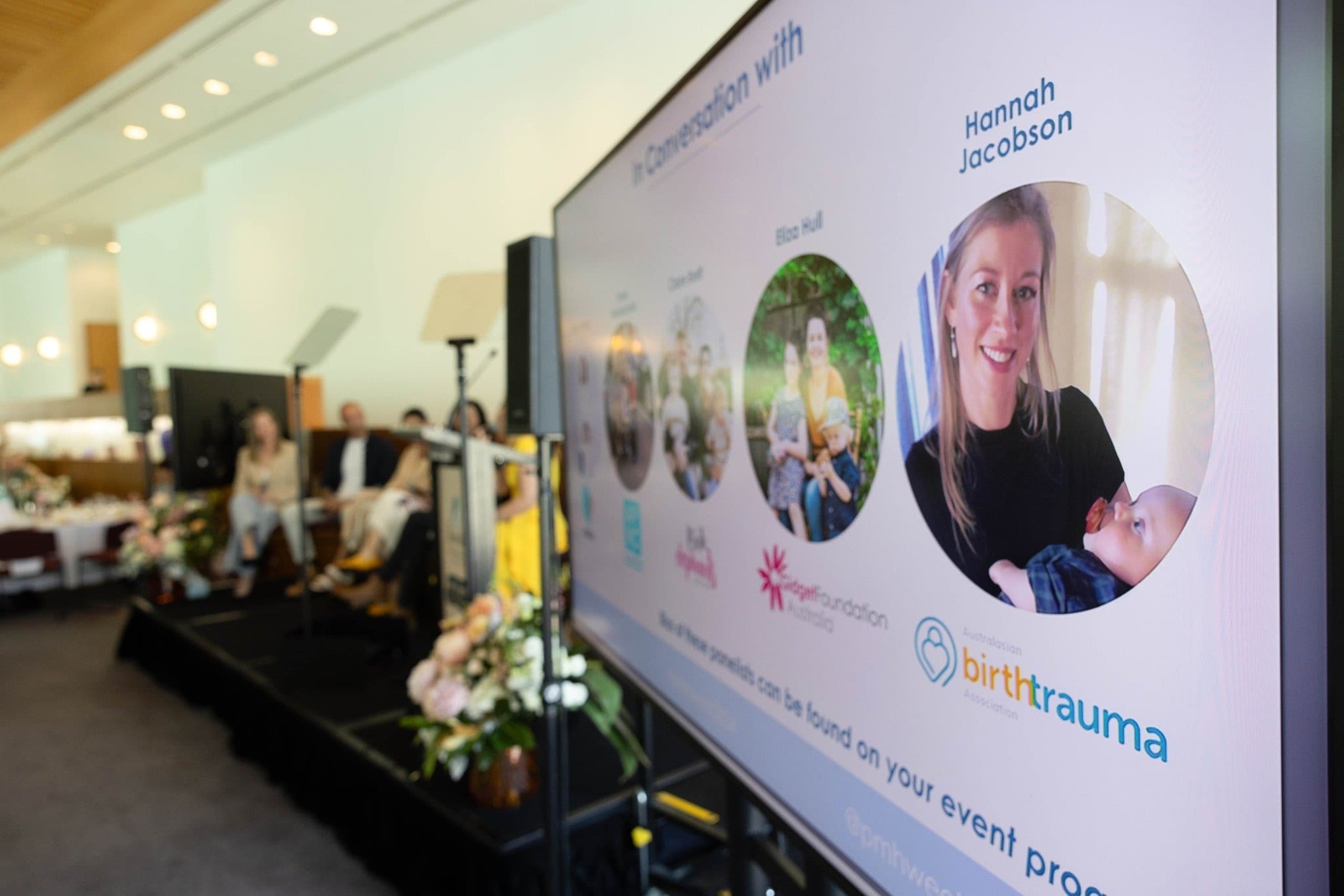Trigger Warning: This birth story is about a partner’s experience of birth trauma, and includes a description of posterior labour. If you are triggered by these topics you may wish to skip this blog or read it once you have support available. If you are seeking support for your birth trauma, you may wish to contact our Peer Support Service.
Being married to a therapist certainly has its perks. She often reminds me that every emotion, every experience, is valid.
When I think back to the birth of our son, our second child, I remember the moment I looked into my wife’s eyes and felt her fear. I swear I physically felt her pain as my own. She had been pushing and our sunny-side-up-son wasn’t descending as quickly or easily as anyone wanted. In that moment, I knew she thought he was stuck. And, while the care team and I could see that he was not stuck, it didn’t make it any less real or terrifying for Allison.
At 12:29 PM, our little boy made his arrival. He was healthy, Allison was healthy, and by all accounts, it should have been a great celebration. I cried. I cried from relief, from fear, from exhaustion, from joy. He was here, he was perfect. Allison was, to no surprise, a rockstar. So, I was also crying from pride and relief for her.
I remember someone on the care team asking me why I was crying. It was then followed by, “He’s fine, you don’t have to cry.” I am confident that the comment was meant to be reassuring, but I felt as though I needed to explain my emotions. And, honestly, I wasn’t even sure how I was feeling.
If you are not the partner of a carrying mother, you may not fully understand the multifaceted stressors that accompany this role. And while every person’s experience will be individual to them, I hope I can shed some light on this supporting role.
As I have reflected on this experience, I realised that there are many stressors at play that contributed to my perspective of this ‘should be’ perfectly happy birth:
- Our son was born about a month after I was in a car accident. The fragility of life – and that it could be gone in an instant – was incredibly raw.
- I am a self-diagnosed tomophobic (fear of all things medical) hypochondriac (anxious about health). As you can imagine, the former can inform the latter and be a doozy of a duo. As a result, I tend to feel particularly nervous and uneasy in a medical situation – even if I am not the patient. I actually remember telling the anaesthetist not to miss because “I want my wife to walk again.”
- As a same-sex partner, I am wired to be incredibly cautious and sometimes guarded. While any medical professional should treat all patients and their families equally, that is far from the reality. On multiple occasions I have been asked who I am, constantly reminding others that I am “the other mother.” My favorite was, “which one of you is the mother?” The answer is C: All of the above.
But, here’s the thing. You don’t have to have recently been in a car accident, be terrified of all things medical, and also fighting stereotypes on the daily to be stressed. Everyone has their own stressors, each of them valid. And whether we recognize it or not, the biggest stressor of all is managing the responsibility of being the support person for your partner as well as the advocate for both patients: mother and child.
The minute our children are born, all eyes (typically) go to them. We physically walk away from the birthing mum – following the newborn over as vitals are taken. During both births, for our daughter and our son, I remember this moment – walking away from Allison and feeling torn. How can we be fully present – physically, mentally, emotionally, as we attempt to care for two separate individuals?
Each time, I have followed our children over for vitals because they can’t advocate for themselves. And, each time, I have felt some level of guilt, if only for the few moments I was away from Allison. This, combined with our own rush of emotions and feelings of becoming a parent, is just so much. It’s impossible, even with our phones down, to feel present enough to enjoy this moment as a parent, to feel like a truly supportive partner, and to be a caring parent. Just as quickly as our hearts grow in size, they seem to feel pulled in all directions.
I hope that all members of patient and family care teams know this: birth is traumatic, even when it’s joyful. Even when mum and baby are healthy. Even when there are positive outcomes, it can be a traumatic experience. What you, as doctors and nurses, midwives and doulas, medical assistants and techs see every single day is not what we see every day. For some, it’s a once-in-a-lifetime experience. For the lucky few, it’s still only a handful of days in their entire life. Don’t be callous. Don’t take things personally. Don’t assume that a healthy and happy baby means a healthy and happy parent.
Birth causes a rush of emotions – from fear to elation. All of them valid. Be gentle with your patients and with their partners.
Friends and family: check in with the birth partners. It’s exhausting to be the advocate, to make sure everyone is cared for and supported – it feels like the weight of the world, but a weight I’d carry over and over.
If you would like to connect with a mum who has experienced birth trauma, please contact our Peer2Peer Support service to connect with one of our Peer Mentors.




